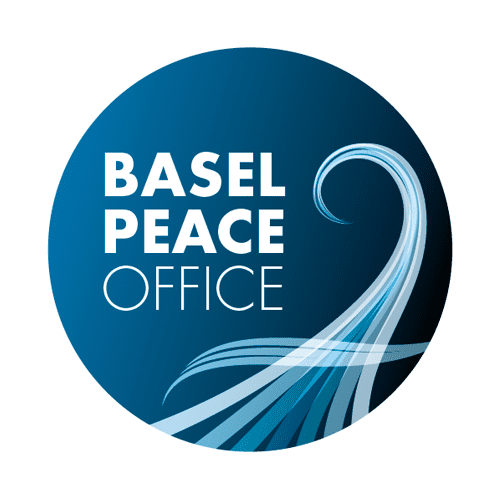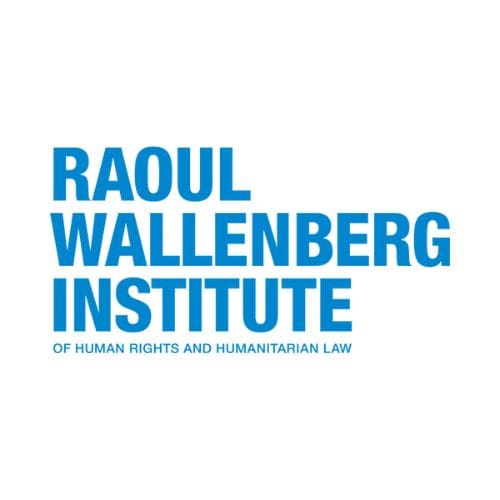ImPACT Coalition:
Just Institutions & the International Court of Justice (ICJ)
ImPACT Coalition:
Just Institutions & the International Court of Justice (ICJ)
The coalition builds upon and seeks to expand – in scope, diversity of membership, and impact of multi- stakeholder contributions – the work of the Legal Alternatives to War (LAW not War), a global campaign launched in October 2023 to increase the universality, impact and effectiveness of the ICJ. The campaign acknowledges that although the ICJ is the world’s principal judicial organ for peacefully resolving conflicts between states, ensuring justice and upholding the rule of law. However, it is inhibited by limited jurisdiction and is not utilized to its fullest potential by States. In the medium to long-term, this coalition will advocate for all UN Member States to accept the ICJ’s compulsory jurisdiction over contentious disputes, as 74 have done to date. Further, other sectors with an interest in justice and peaceful dispute resolution, including civil society and the public, often are unaware of its potential and contributions.
This coalition will work in the short, mid, and long-term to increase awareness of and engagement with the ICJ. Finally, this coalition will work with existing mechanisms like the Coalition for the ICC, and new ImPACT Coalitions, such as for an International Anti-Corruption Court to support complementary and linkages between domestic, regional, and international institutions.
What are ImPACT Coalitions?
At their core, ImPact Coalitions bring together stakeholders working on various issues related to the Summit of the Future to create networks that support Member States who wish to champion specific reforms and proposals toward the Summit of the Future and crucially, begin the implementation process beyond.
Core Principles
The expectation of accountability and a rules-based legal order was a central ambition of the international governance system. With conflicts raging in nearly every region and atrocities compounding, more must be done to ensure the promise of justice is not illusory. Civil society has a vital role to play in this regard, working with States and other stakeholders to advance key judicial reform initiatives leading up to and beyond the Summit of the Future. This coalition takes as its foundational principle the axiomatic assertion of Ben Ferencz that “There can be no peace without justice, no justice without law and no meaningful law without a Court to decide what is just and lawful under any given circumstance.”
Current international judicial institutions, including the ICC and ICJ are imperfect, and it is incumbent on those who uphold peace and justice to help improve them.
The coalition embraces the following further core principles:
We strive to work with and complement existing and future coalitions for the betterment of the global judicial architecture;
We appreciate the fundamental guiding principles of complementarity and cooperation among international institutions and with domestic and regional justice systems;
We condemn all attempts to inhibit or undermine the independence and functionality of international judicial institutions;
We call upon States to ensure such bodies have adequate support to fulfill their mandates;
We recognize judicial structures are part of an intersectional ecosystem including many and diverse approaches to peace and diplomacy; and
We demand States adhere to legally binding judicial decisions.
Key Recommendations /
Practical Next Steps
The ICJ has had considerable success at resolving international disputes, including some that involved the threat or use of force. Examples include:
- Recommendation: Foster an inclusive and participatory coalition base of civil society and other stakeholders willing to engage the ICJ/other courts and tribunals in the short- and medium term to engender greater confidence in these institutions and contribute to their effectiveness. Next Step: Convene monthly online discussions of coalition members (see below).
- Recommendation: Enlist stakeholders, particularly legal professionals and civil society activists, able to advocate to Member States for universality of the ICJ and support for international courts and tribunals. Next Step: Convene monthly online discussions of coalition members (see below).
- Recommendation: Ensure that justice outcomes are included in the Pact for the Future. Next Step: Actively participate in all Member State consultations on the Pact and help draft Chapter 2 on Peace and Security in the People’s Pact.
- Recommendation: Advance progress toward ICJ universality. Next Step: Convene closed bilateral consultations with target States. Collaborate to host a hybrid event to coalesce the loose group of likeminded States into a more active and cohesive grouping.
- Recommendation: Determine coalition’s working methods post-Summit of the Future. Next Step: Organize a hybrid participatory event during the civil society Action Days at the SotF focused on developing a roadmap going forward.
Provisional Timeline
May 2024
Coalition launched in Nairobi. Provisional workplan socialized. Provide inputs to People’s Pact for the Future and redline Pact for the Future from a peace and justice lens.
June 2024
Convene first coalition meeting, finalize workplan with broader input, and agree upon short- term goals through September. Conduct Member State consultations with target countries. *Potentially hold hybrid event with likeminded States
July 2024
Convene second coalition meeting and assess progress toward goals. Conduct Member State consultations with target countries.
August 2024
Convene third coalition meeting and assess progress toward goals. Conduct Member State consultations with target countries. Prep for Civil Society Action Day.
September 2024
Convene fourth coalition meeting in advance of SotF. Hold event for Civil Society Action Day.
2025 (Q1)
Forward planning to formalize organizational structure of coalition with budget and fundraising plan, staffing (potentially pro bono) for both Secretariat functions and legal, reporting, communications, etc., to determine longer-term viability, drawing from CICC, etc.
Past Event Recordings
Missed the event? You can learn more about how this coalition will advocate for concrete commitments related to judicial institutions and processes to be included in the Pact for the Future and Summit of the Future outcomes from the event recordings below.
Coalition Convocations:
ImPACT Coalition on Just Institutions and the International Court of Justice
June 24, 2024
Session I:
Global Justice in Conversation: Successes in Nuclear Nonproliferation & Disarmament
July 18, 2024
Session II:
Global Justice in Conversation: Concurrent Pathways to Accountability
July 18, 2024
Organizations
Additional Resources
The LAW not War campaign has begun to aggregate and share analysis of current ICJ cases and examples of past successes. These currently reside at one of the campaign’s websites:
LAW not War
Legal Alternatives to War: Increasing the universality and effectiveness of the International Court of Justice. The organizers also disseminate a newsletter with updates on campaign and Court developments to which individuals can sign up at the website.
Individuals and organizations who wish to join the campaign can sign up here: LAW not War – Participating organization registration form.
































